A 20kW diesel engine generator, known for its reliability and efficiency, is a perfect option for both home and commercial use. In case of sudden power cuts, running remote sites, or supporting critical systems without downtime, this generator provides an energy source you can rely on to meet your varied needs. The article will take you through the significant advantages, characteristics, and uses of a 20kW diesel generator, and, therefore, it will become clear to you why it is a necessary investment for both the continuity of work and the tranquility of mind. Keep reading and find out how this mighty solution can ensure that you are never out of power at the most crucial times.
Benefits of Using a 20kW Diesel Generator
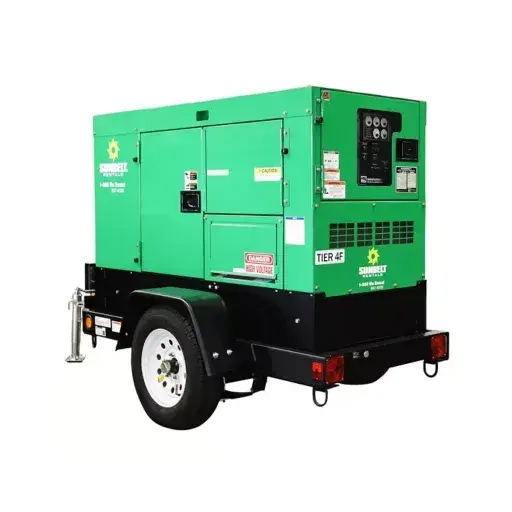
- ✓ Consistent Power Supply
The 20kW diesel generator is a reliable and constant power source that ensures almost no outages or disruptions, even in off-grid areas. - ✓ Fuel Efficiency
The use of diesel engines entails less fuel consumption compared to other types of generators, thus cutting down on operational costs in the long run. - ✓ Durability and Longevity
Such generators are designed for heavy-duty operation and are equipped with strong parts that will not easily wear out, even after extended use. - ✓ Versatility
This generator is capable of various uses, such as supplying power at home, for business, and at construction sites where access to electricity is difficult. - ✓ Low Maintenance Requirements
Diesel generators usually require less maintenance and are more accessible for servicing, resulting in a further reduction of long-term costs.
Durability and Longevity Compared to Alternatives
Diesel generators have always been known for their excellent durability and longevity, making them comparable to other types of generators, such as gas-powered or solar-powered systems. Their heavy-duty construction, combined with the built-up efficiency of diesel engines, makes it possible to use them continuously and subject them to quite severe conditions for a long time without breakdown.
Regularly maintained, gas generators might have a life of a couple of thousand hours, whereas diesel generators are meant to run for tens of thousands of hours. The fact that they consume a little less power at slow engine speeds means less energy is wasted as heat, which eventually takes its toll on the component’s lifetime.
Solar-powered systems offer a prolonged power supply, but the efficiency of the solar panels and the environmental factors will determine their durability. Considering their reliability and the vast range of power output, diesel generators are the number one choice for long-term investments in challenging places.
Safety Advantages of Diesel Fuel
The safety benefits of diesel fuel over gas fuels are one of the main reasons for its preference in many industrial applications. Diesel’s higher flash point makes it less volatile than gasoline, and the risk of accidental ignition is therefore minimized in normal conditions. This property of diesel makes it safe for handling, transporting, and storing.
Moreover, diesel engines operate on the principle of compression ignition; therefore, spark plugs are not used, eliminating the risk of fire due to sparks. These safety features, together with diesel’s efficiency and reliability, have led to its use in critical applications like backup power systems and heavy machine operations.
Maintenance Tips for 20kW Diesel Generators
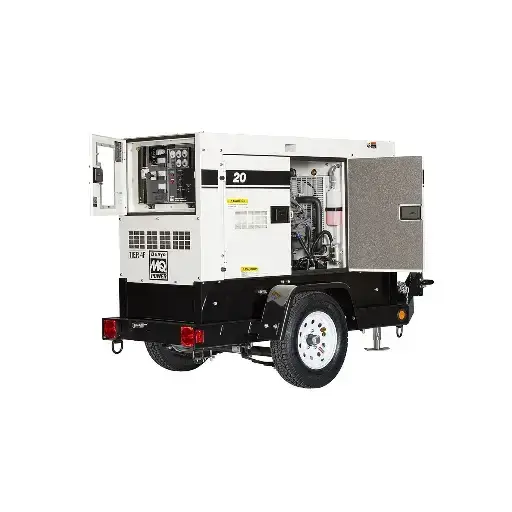
Maintaining a 20kW diesel generator involves regular oil changes according to the manufacturer’s specifications to keep the engine running smoothly. Regular checking and changing of air and fuel filters prevent blockages and maintain efficiency. Regularly monitor the coolant levels and add the proper coolant mixture to avoid overheating. Clean the generator by removing dust and debris that may obstruct performance. Also, check the battery regularly to ensure the generator starts without difficulty, and run it under load occasionally to prevent problems from long periods of inactivity. If you stick to these practices, you will be able to make your generator last longer and more reliably.
Routine Maintenance Tasks
Your generator must have a regular maintenance schedule to function correctly. The most common tasks are:
- Oil Level Checks: Checking the oil level and changing it if necessary, usually every 50-100 hours of running or according to the manufacturer’s advice.
- Air Filter Maintenance: To keep the air going in and the engine running well, clean or change the air filter periodically.
- Spark Plug Inspection: Check spark plugs for signs of wear and replace them if needed to avoid misfiring.
- Fuel System Checks: Check the fuel system for leaks, clogs, or contamination, and drain any old gasoline if the generator has not been used for a long time.
By doing these things, your generator will always be in a good working condition.
Annual Maintenance Costs
| Generator Type | Annual Cost Range | Maintenance Included |
|---|---|---|
| Home Generators | $150 – $300 | Oil changes, air filter replacement, spark plug checks |
| Standby Generators | $300 – $600 | Professional inspections, complicated repairs, and all basic maintenance |
💡 Important Note: It is wise to consider possible extra costs for surprise repairs or part replacements, which might make the total cost even higher. Performing maintenance regularly not only helps avoid expensive breakdowns but also ensures the generator works efficiently when needed.
Real-World Applications of 20kW Diesel Generators
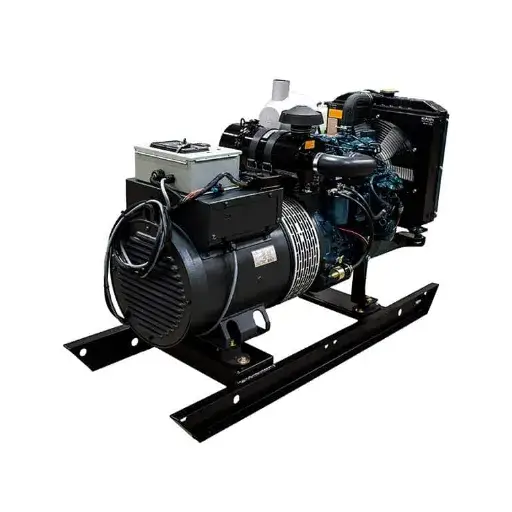
20 kW diesel generators are multi-purpose power sources that make sure electricity is available everywhere. They are mainly used in small shops like retail stores and restaurants to restore electricity and thus keep working quickly. Sometimes, they are even used by household owners with heavy energy needs for backup. The generators are often taken to construction sites where they provide power for tools and equipment to workers in areas without grid access. Besides that, they are used in farming to provide power to irrigation systems, pumps, and other machinery. Their strong construction and efficient fuel consumption make them ideal for supplying energy in remote or crucial locations where reliability is essential.
Residential Backup Power Solutions
Don’t miss the opportunity to invest in a dependable backup generator for your house, which will power your home and keep the power running to your appliances and systems. You can rest easy with the little power cuts that are becoming more frequent due to the ever-changing weather conditions and increased usage of electric power. The generators will be your reliable partners when it comes to emergencies.
Machines like refrigerators, breathing devices, and HVAC systems will receive the necessary electricity and thus will not go to waste; people will remain comfortable, and, more importantly, health risks will be avoided. Additionally, the new generators consume less fuel and require less maintenance, making them a wise and economical option for homeowners seeking energy resilience to cope with power outages.
Commercial Powering Needs
To put it differently, backups addressed the vital problem of power cuts during commercial applications by ensuring business continuity. Different sectors like healthcare, manufacturing, and IT services require uninterrupted power to keep their operations running smoothly.
Backup generators do so by allowing data to remain undisturbed, reducing downtime, and guarding sensitive devices, which in turn protects the revenue and customer trust. Thanks to technological innovations, companies can now purchase generators with automatic monitoring systems and eco-friendlier fuel choices, efficiently meeting their energy needs and contributing to sustainability objectives.
How to Choose the Right 20kW Diesel Generator
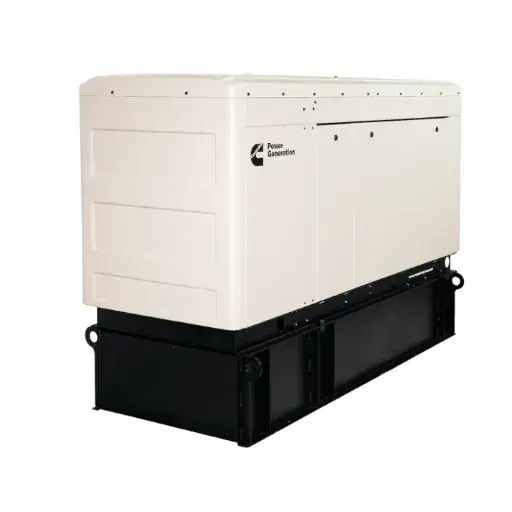
A 20kW diesel generator selection should begin with an evaluation of the power needs, comprising the most vital and maximum loads. This step will help to confirm that the generator is suitable for the application. Along with this, efficiency and fuel usage should be considered to control operating expenses effectively. Manufacturers that offer good reliability and customer support should be the ones to look for. Compliance with noise and emissions regulations should be checked as well, particularly if the generator is intended for residential use. In addition, priorities should include automatic start, monitoring systems, and durability in harsh conditions to enhance convenience and performance.
Assessing Your Power Needs
To analyze your energy requirements, you first need to know the total wattage necessary for your application. To do this, start with a list of all devices, appliances, or equipment you want to power and write down their starting and running wattage. Bring up the critical loads, such as HVAC systems, medical equipment, or essential business operations.
There will be surge wattage demands when motors and compressor-driven devices are turned on; these should also be factored in. A generator that produces just enough wattage will guarantee performance continuity while preventing overloading situations. In addition, future needs or potential expansion can be considered when sizing up the generator for more flexibility.
An accurate assessment can be achieved by professionals’ consultation or the use of online tools, which can also refine your calculations.
Budget Considerations for Purchasing
All in all, the process of deciding how much money to set aside for a generator must focus on the intersection of cost, performance, and reliability. To do so, first list the must-have characteristics that are going to be the basis of the generator selection, e.g., wattage capacity, fuel type, and, mainly, extra features such as portability or noise reduction.
The prices of generators vary greatly depending on their power, ranging from less than a thousand dollars for small ones to more than a thousand dollars for powerful standby generators. One of the most important factors to consider in the long term is the total cost of ownership, which consists of fuel bills, maintenance, and the likelihood of repairs.
Direct feedback from different customers in the form of reviews or ratings can be a good source of insights concerning the overall satisfaction and value of the product. Moreover, it is a good practice to look into the warranties and customer service options, as these might turn out to be the source of savings and support in case of trouble throughout the life of the generator.
While cost is a significant consideration, the final decision must still be made based on quality and the right fit for your specific needs, as that will ensure a better investment.
The Environmental Impact of Diesel Generators
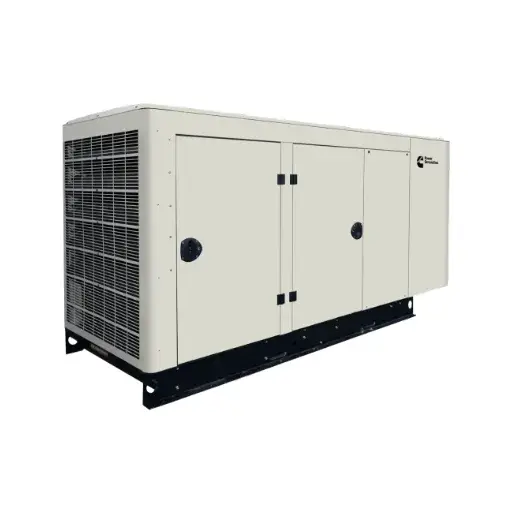
The emissions and fuel consumption associated with diesel generators have a considerable negative impact on the environment. The usage of these generators emits NOx, PM, and CO2, which in turn affect air quality and the greenhouse effect. Furthermore, the entire process of extracting diesel fuel from the ground and refining it can lead to habitat destruction and the depletion of natural resources.
Diesel generators are still considered to be very reliable and economical sources of power, but their environmental impact has to be taken into account. The best next step could be either adopting cleaner alternatives or implementing mitigation strategies, such as regular maintenance to maintain efficiency and reduce emissions.
Advancements in Diesel Technology
Recently, diesel technology has made great strides in addressing environmental issues while still performing efficiently. Among the innovations are the cleaner-burning engines, the low-sulfur diesel fuel, and the integration of advanced exhaust after-treatment systems, all of which have contributed remarkably to the elimination of harmful emissions.
The use of Selective Catalytic Reduction (SCR) and Diesel Particulate Filters (DPF) is just one reason why many modern diesel engines are so environmentally friendly—they also significantly reduce the emissions of nitrogen oxide (NOx) and particulate matter.
At the same time, the growing popularity of biodiesel and renewable diesel fuels is another step towards sustainability, as it reduces fossil fuel use and eventually leads to a smaller carbon footprint. These advancements, along with improved engine management systems and AI-driven diagnostics, demonstrate that the switch to more environmentally friendly diesel technology is actually happening.
Comparing Emissions with Other Fuels
| Fuel Type | CO2 Emissions | NOx & PM Emissions | Notes |
|---|---|---|---|
| Diesel | Lower per mile (efficient) | Higher (reduced with SCR/DPF) | Modern systems significantly reduce harmful emissions |
| Gasoline | Higher per mile | Lower than traditional diesel | Less efficient overall |
| Natural Gas | Lower than gasoline | Less NOx, practically no PM | Cleaner-burning option |
| Electric (EVs) | Depends on the electricity source | No tailpipe emissions | Total impact varies by power generation method |
| Biodiesel/Renewable Diesel | Lower lifecycle emissions | Similar to modern diesel | Sustainable alternative with reduced carbon footprint |
In general, regarding carbon dioxide (CO2) emissions per mile traveled, diesel engines, due to their higher fuel efficiency, outperform gasoline engines. Nevertheless, they were always the primary source of NOx and PM, which are really harmful pollutants. Presently, thanks to the most recent emission control techniques such as selective catalytic reduction (SCR) systems and diesel particulate filters (DPF), the amount of NOx and PM released by modern diesel engines has come down tremendously. At the same time, natural gas engines are considered a cleaner-burning option; they produce less NOx and practically no PM, although CO2 is still released, albeit in smaller quantities. Despite being commonly regarded as the cleanest choice, electric vehicles (EVs), which produce no tailpipe emissions, have their total environmental impact determined by the method of electricity generation used for charging. Renewable diesel and biodiesel are said to be the fuels of the future as far as lifecycle emissions are concerned, because they come from the side of nature and emit less greenhouse gases than fossil fuels. Hence, while diesel is still a polluter, it has made progress in reducing its environmental footprint; other fuels and technologies continue to offer complementary and often lower-emission pathways.
Tips for Reducing Environmental Impact
As a step towards minimising my environmental impact, I concentrate on the transition to an eco-friendly lifestyle in my daily routine. I have been turning off and unplugging appliances when they are not in use, and even buying energy-efficient ones to reduce the total amount of energy used. Besides that, I make it a point to use renewable energy sources whenever possible and also use public transport or carpooling to lower emissions. Besides this, by recycling, composting, and reducing waste, I contribute to the environment and support the use of multiples instead of disposables. Finally, I vote with my dollar by choosing businesses and products that not only meet my needs but also respect the environment and reflect sustainability in their values.
Reference Sources
The following five reference sources are professional and authoritative, which you can use to verify the accuracy of your article about the “20kW diesel generator.” These resources are academic and research-based.
IEEE Xplore
Title: Prototype of a 20 kW cogenerator with reduced global cost
Description: The paper presents the design of a 20kW cogenerator, its global cost, and the insight thus gained into diesel engine modifications and efficiency.
ScienceDirect
Description: The research investigates the remote electrification of diesel generators with batteries, emphasizing the efficiency and sizing of the units.
MDPI (Multidisciplinary Digital Publishing Institute)
Title: Optimal selection of the diesel generators supplying a ship’s electric power system
Description: The paper discusses the optimal operation of diesel generators in ship power systems, providing insights into load management and efficiency.
GMSARN (Greater Mekong Subregion Academic and Research Network)
Description: The study analyzes the performance and longevity of diesel generators that use alternative fuels, thus presenting a scenario of sustainability.
AJSES (Al-Muthanna Journal of Engineering and Sciences)
Title: New Design for a 2 kW Capacity Cooling System Powered by Exhaust Gases of a Diesel Engine
Description: This study, although tiny in capacity, depicts the innovative scope of using exhaust gases from diesel engines in larger systems (like 20kW generators).
Frequently Asked Questions (FAQs)
❓ What is a 20kw diesel generator?
A 20kw diesel generator is a robust power system designed to provide a reliable electrical supply for various applications, including residential, commercial, and jobsite needs. It typically features a liquid-cooled engine that operates at 1800 rpm, ensuring efficient performance and excellent fuel economy.
❓ How does voltage regulation work in a 20kw generator?
Voltage regulation in a 20kw generator ensures a stable output voltage across varying loads. This is typically managed by the alternator and the generator’s controller, allowing for consistent power delivery, which is crucial for sensitive electronic equipment.
❓ What are the typical run times for a 20kw diesel standby generator?
The run time for a 20kw diesel standby generator can vary based on fuel capacity and load. On average, these generators can provide continuous power for up to 24 hours at full load, making them ideal for extended use during outages or in demanding applications.
❓ What is the difference between single-phase and 3-phase 20kw generators?
Single-phase generators deliver power in a single waveform. They are typically used for residential applications, while 3-phase generators provide power in three waveforms, offering more stable and efficient power delivery for industrial and commercial applications. This makes 3-phase systems preferable for high-demand environments.
❓ Are there any accessories available for the mobile 20kw generators?
Yes, there are various accessories available for mobile 20kw generators, including transport frames, external fuel tanks for extended run times, and noise reduction enclosures to enhance quiet operation. These accessories increase the generator’s versatility and functionality for different jobsite requirements.
❓ What is the importance of EPA Tier 4 compliance for a 20kw generator?
EPA Tier 4 compliance is crucial for reducing emissions from diesel engines, ensuring that a 20kw generator meets environmental standards. Generators that achieve Tier 4 status are designed to be more environmentally friendly while maintaining robust performance, making them suitable for rental applications and sensitive environments.
❓ How does the transient response of a 20kw generator affect its performance?
The transient response of a 20kw generator refers to how quickly it can adjust to sudden changes in load. A good transient reaction ensures that the generator can maintain stable voltage and performance even during fluctuations, which is essential for reliable power during demanding applications.
❓ What are the product specifications for the Generac diesel 20kw generator?
The product specifications for the Generac diesel 20kw generator typically include features like a liquid-cooled engine, 1800 rpm operation, a durable enclosure, and advanced voltage regulation. These specifications contribute to its reliability, efficiency, and suitability for various power needs.
❓ Can a 20kw generator be used for rental purposes?
Yes, a 20kw generator can be an excellent choice for rental purposes due to its robust design, efficient fuel economy, and ability to support various applications, from construction sites to events. Its mobility and performance make it a reliable option for temporary power needs.
